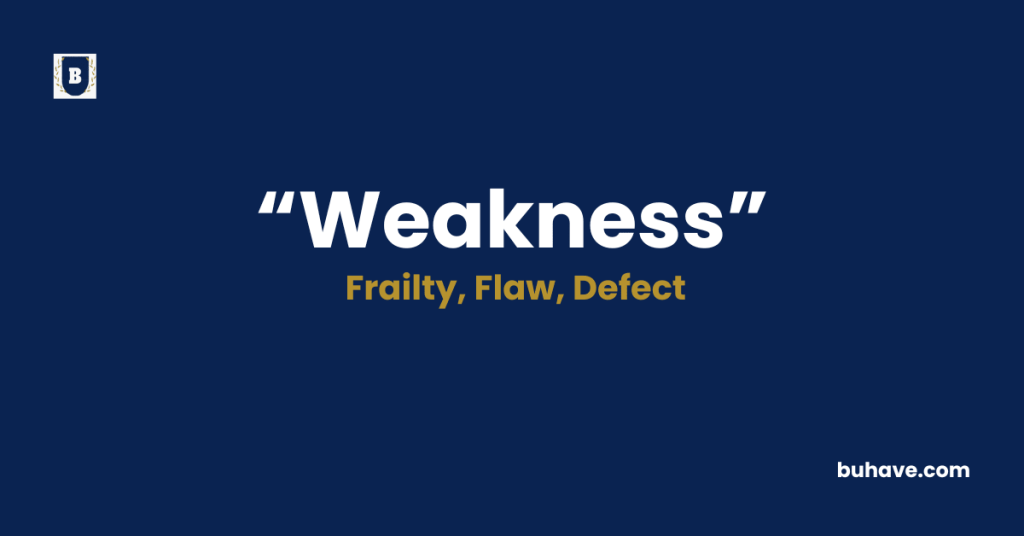The word weakness (Noun) refers to a lack of strength, power, or effectiveness in a person, object, or idea. It can describe physical, emotional, or moral limitations. In this guide, you’ll learn the full definition, synonyms, antonyms, etymology, and real-life examples of how to use weakness correctly in sentences.
Weakness Explained in Depth
A complete and detailed guide to the word weakness, including meaning, definition, examples, etymology, synonyms, and antonyms.
Meanings of Weakness
Weakness refers to a state of being physically frail, mentally vulnerable, or morally flawed. It can also represent a shortcoming, failing, or area of ineffectiveness in performance, judgment, or resistance.
Definition
Weakness is defined as the condition or quality of lacking strength, power, or resilience. It may refer to bodily frailty, emotional sensitivity, indecisiveness, or flaws in character or performance. In a broader sense, it can also refer to something a person is particularly tempted by, such as “a weakness for sweets.”
Etymology
The word weakness stems from the Old English wāc meaning “weak” and the suffix -ness, which turns adjectives into nouns indicating a state or condition. It has been used since at least the 12th century to describe both physical and metaphorical shortcomings.
Example Sentences
- After the surgery, she experienced weakness in her legs.
- His greatest weakness is his inability to make quick decisions.
- Chocolate has always been her biggest weakness.
Weakness Synonyms
- Frailty
- Fragility
- Limitation
- Shortcoming
- Flaw
- Vulnerability
- Ineffectiveness
- Soft spot
- Debility
- Deficiency
Weakness Antonyms
- Strength
- Power
- Stamina
- Resilience
- Endurance
- Stability
- Robustness
- Durability
- Fortitude
- Capability
FAQs about Weakness
Here are some frequently asked questions (FAQs) about the word “Weakness”
1. What does “weakness” mean?
It means a lack of strength, skill, or effectiveness in a specific area or overall.
2. Can weakness be emotional?
Yes, it can describe vulnerability or sensitivity in emotions or mental health.
3. Is weakness always a negative trait?
Not necessarily. Recognizing one’s weaknesses can lead to growth and improvement.
4. Can “weakness” refer to temptation?
Yes, it can also mean a personal indulgence or fondness, like a “weakness for chocolate.”
5. How is weakness different from failure?
Weakness is a limitation or vulnerability, while failure is the inability to achieve a goal or standard.

















